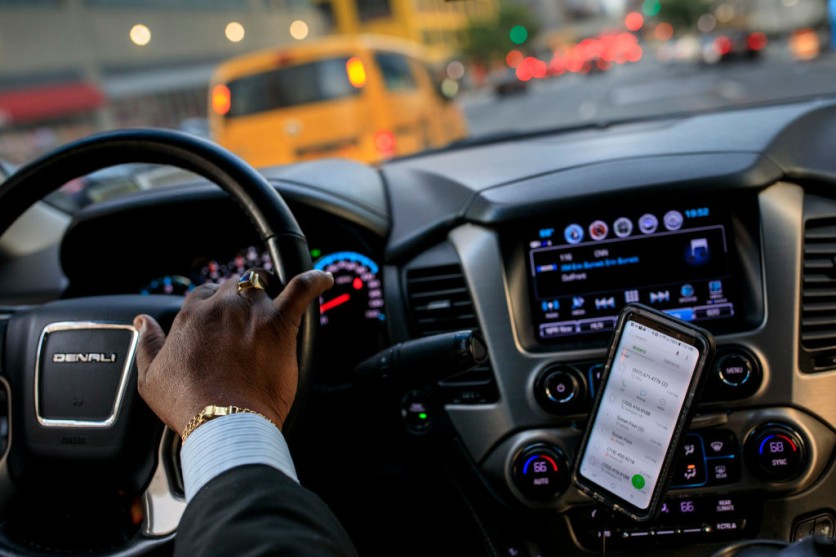A recent study found hazardous carcinogens from flame retardants in vehicle cabins, suggesting that the "new car smell" may pose health hazards.
The study found that flame-retardant chemicals in seat foam and other automotive parts pollute all personal cars. Researchers discovered no verified fire-safety benefits from these compounds used to comply with outdated federal flammability regulations, as per a KPVI report.
Drivers, Travelers Exposed to Cancer-Causing Chemical
Chief researcher Rebecca Hoehn, a Duke University PhD student and toxicology expert, emphasizes the importance of this issue, especially for drivers with longer journeys and young passengers, who are more exposed.
Tris (1-chloro-isopropyl) phosphate (TCIPP), likely to cause cancer, was found in 99% of 101 US cars made in 2015 or later. Most autos also contained two hazardous flame retardants, TDCIPP and TCEP.
Warmer weather increases flame-retardant off-gassing, causing car interiors to reach 150 degrees Fahrenheit. Seat foam samples revealed a link between flame retardant cushioning and vehicle airborne pollutants.
A separate study by the Beijing Institute of Technology-Harvard T.H. Chan School of Public Health found concerns about the interior air quality of a new mid-size SUV plug-in hybrid electric, as reported by Forbes.
The research found that the SUV's VOC levels exceeded Chinese safety guidelines. The International Agency for Research on Cancer classifies formaldehyde and benzene as class I carcinogens, while styrene poses health hazards.
Read Also : Republican Lawmakers Launch Attack on Biden's 'Delusional' EV Tax Credits, EPA Emissions Rule
Under varied weather conditions, the study team measured VOC concentrations in the parked SUV for 12 days, from July 21 to August 1, 2022. The goal was to show how temperature and humidity affect VOC levels.
During monitoring, formaldehyde and acetaldehyde concentrations exceeded Chinese safety regulations by 34.9% and 60.5%, respectively. Benzene levels were also high, suggesting that the air quality of the new car interior may be harmful.

Here's How to Keep Healthy Air Quality in Your Car
California has updated flammability regulations for furniture and infant goods without flame retardants, maintaining or improving safety, as recommended by experts. Flame retardant exposure extends beyond car interiors, with research linking it to cognitive deficiencies in children and cancer risks.
Moreover, Lydia Jahl, a senior scientist at the Green Science Policy Institute, stresses the importance of reducing vehicle flame retardant use to reduce commuting health concerns.
Meanwhile, the American Lung Association recommends certain strategies that reduce traffic-related pollutants and improve vehicle air quality, such as choosing less-crowded routes and driving off-peak.
To reduce exhaust emissions, the association suggests keeping a safe distance from other cars when driving and at traffic stops, when stalled in traffic or at stop lights, close automobile windows, and use recirculated cabin air. During lighter traffic, open windows for cleaner air circulation.
Moreover, the advocacy group advises cleaning the interior of automobiles to reduce dust and indoor air pollutants. It noted that regular cleaning and clutter reduction can be achieved without sprays or air fresheners. It also includes wiping door panels, consoles, and dashboards with a moist cloth to keep them clean while cleaning upholstery, carpeted floors, and mats to eliminate trash. To improve air quality, the group recommends avoiding smoking or vaping in cars.
It is also important to note that effective cabin air filtration requires regular inspection and maintenance. Unlike the engine air filter, the ventilation system's cabin air filter protects occupants from contaminants. Manufacturers recommend changing cabin air filters every 15,000 miles or as the car owner's handbook instructs.
Related Article : Neuralink Co-Founder Reveals 'Safety' Concerns as the Reason for Leaving Elon Musk, the Company

![Apple Watch Series 10 [GPS 42mm]](https://d.techtimes.com/en/full/453899/apple-watch-series-10-gps-42mm.jpg?w=184&h=103&f=9fb3c2ea2db928c663d1d2eadbcb3e52)



